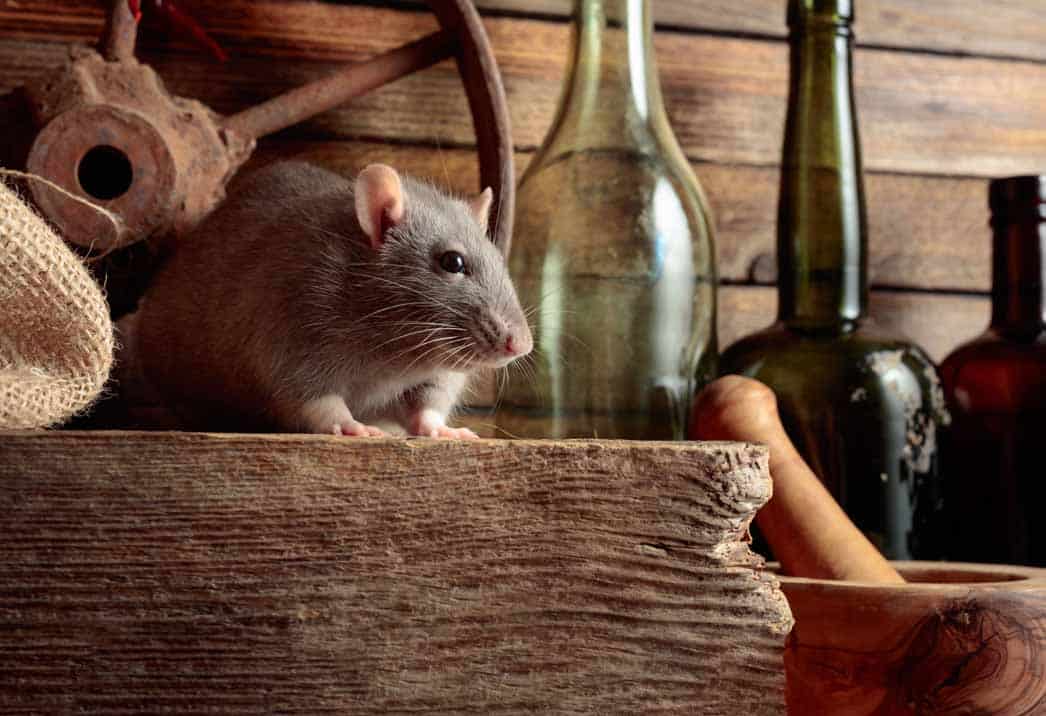We understand how important it is to keep your home safe and comfortable. One of the most common threats to that comfort can be a rodent infestation. Mice and rats may be small, but they can cause big problems if they go unnoticed for too long. In fact, according to the National Pest Management Association, rodents invade an estimated 21 million homes in the United States each winter alone. That’s a whole lot of unwelcome guests!
While rodents can appear cute in certain cartoons or children’s stories, the real-life experience is far from charming. They can spread diseases, contaminate food, and even chew on your electrical wiring, which can become a serious fire hazard. The good news is that if you know the early signs, you can act quickly to keep an infestation from getting out of hand.
At Wake Pest, we want to share some of the top red flags that often indicate you’ve got some furry intruders lurking around. Here are the five most common early warning signs of a rodent infestation:
1. Droppings
The most telltale and perhaps the most unpleasant sign is droppings. Mice and rats leave small, pellet-like waste in places they frequent. You might spot them in cupboards, pantries, drawers, along baseboards, or anywhere else they’re active. Fresh droppings tend to be dark and moist; older ones become drier and may look gray or dusty.
Finding a handful of droppings isn’t necessarily a sign of a massive infestation, but it’s a clear indicator that at least one or two rodents have decided to call your home theirs. If you see droppings regularly, or in multiple areas of your home, it’s time to investigate further or call a professional for help.
2. Gnaw Marks
Rats and mice have incisors that never stop growing. As a result, they chew on just about anything to keep those teeth filed down. You might notice gnaw marks on baseboards, wooden beams, cardboard boxes, or even electrical wiring. The marks from mice tend to be small and neat, whereas rat gnaw marks are larger and rougher around the edges.
These little “chew signatures” are a huge red flag. Remember, damage to wiring isn’t just cosmetic; it’s a major fire risk. The U.S. Fire Administration notes that defective or chewed wiring is one of the potential contributors to house fires. If you see gnaw marks, it’s a sign that rodents have been active and may still be around.
3. Strange Noises
Have you ever been sitting quietly in your living room and heard faint scratching or scurrying sounds in the wall? If you’ve heard squeaking, scraping, or little feet scampering around your attic at night, there’s a strong chance you have a rodent issue. Mice and rats are nocturnal creatures, so you’ll likely hear their activity in the evening or late at night.
Pay close attention to where the sound is coming from. If the noises are predominantly in the attic, a rodent may have built a nest up there. If you’re hearing things behind walls, they could be exploring your home’s “invisible pathways” (like crawl spaces or wall cavities) in search of food and nesting materials.
4. Nests and Nesting Materials
Rodents are resourceful when it comes to creating cozy nests. They’ll gather shredded paper, bits of fabric, insulation, dried leaves, or other soft materials to make a warm little bed. If you find clumps of shredded material in a hidden corner of a closet, a seldom-used kitchen cabinet, or a storage area, it could be a mouse nest.
Sometimes, discovering a nest is the first clear confirmation of a rodent infestation. Once they settle in, they can reproduce quickly. For instance, a female mouse can give birth to five or six babies in about three weeks, and those offspring can start having their own babies in just a couple of months. Before you know it, you could have a significant rodent population if you don’t address the issue right away.
5. Foul or Musky Odors
Rodent urine has a strong, musky smell that can linger in poorly ventilated areas. If you’ve noticed a sharp, unpleasant odor in certain parts of your home—like the pantry, under the sink, or in the attic—it may be due to mice or rats marking their territory. Sometimes, you’ll also notice a stale, musty smell near large infestations or if a rodent has passed away in an inaccessible area.
Unfortunately, a foul odor can persist even after the rodents are gone if you don’t fully disinfect and deodorize the area. That’s why prompt detection and thorough cleanup are so important for your family’s health and comfort.
Why Early Detection Matters
Early detection of a rodent problem is crucial for several reasons. First, the longer rodents linger, the greater the risk to your health. Rodents can carry fleas, ticks, and a range of pathogens that cause diseases like salmonellosis, hantavirus, and leptospirosis. Second, they reproduce quickly. A small problem can balloon into a large infestation before you know it. And finally, rodents can damage your home’s structure and personal belongings, leading to costly repairs.
What to Do if You Spot These Signs
- Act Fast: The quicker you respond, the simpler the solution is likely to be.
- Clean Thoroughly: Discard any contaminated food, wipe down surfaces, and clean up droppings (using proper protective gear).
- Seal Entry Points: Look for holes, cracks, or gaps along the exterior of your home. Mice can squeeze through openings as small as a dime.
- Remove Food Sources: Keep food in sealed containers and promptly dispose of household trash.
- Contact a Professional: If you suspect a bigger problem, professional pest control services can help locate the nests, remove the rodents, and keep them from coming back.
A Partner in Prevention: Wake Pest
We know how unsettling it can be to realize you have a rodent issue. Our team at Wake Pest is committed to helping Raleigh-area homeowners take back control of their homes. From thorough inspections to effective treatments, we have the experience needed to handle even the toughest infestations. Plus, we offer preventive measures to keep rodents away in the long run.
Remember, a rodent infestation isn’t something to ignore—these critters won’t just go away on their own. Keep an eye out for droppings, gnaw marks, strange noises, nests, and foul odors. If you notice any of these signs, don’t hesitate to act. A prompt response can save you a lot of trouble down the road. You deserve a rodent-free home, and we’re here to help make that happen!

